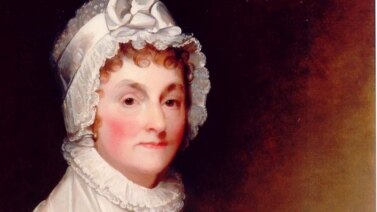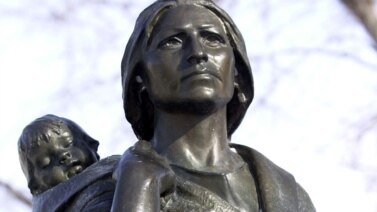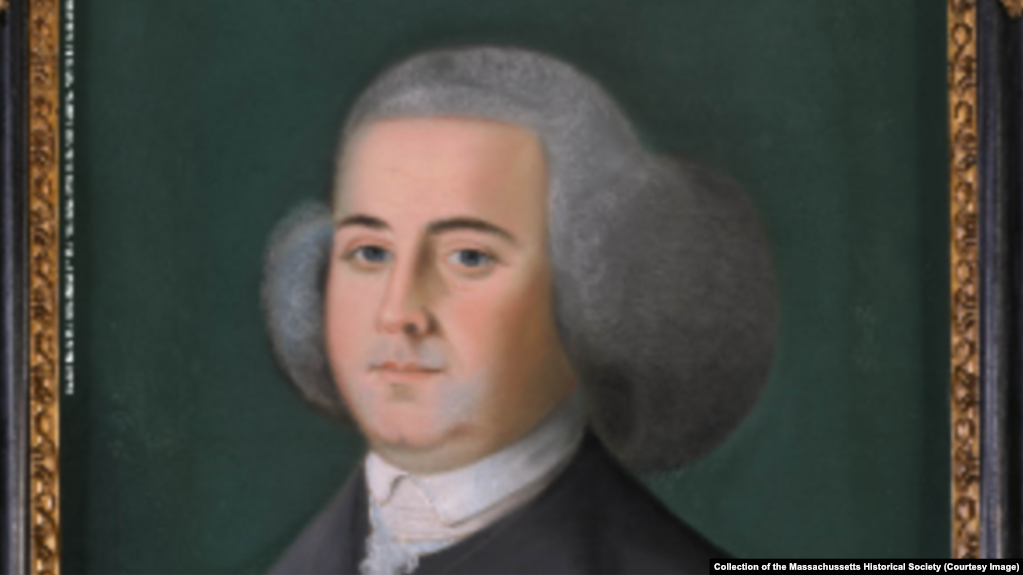
Do you recognize that song? It is the opening to the show “The Addams Family.”
But today we are talking about a different Adams family — one from the history books, not the television program of the 1960s.
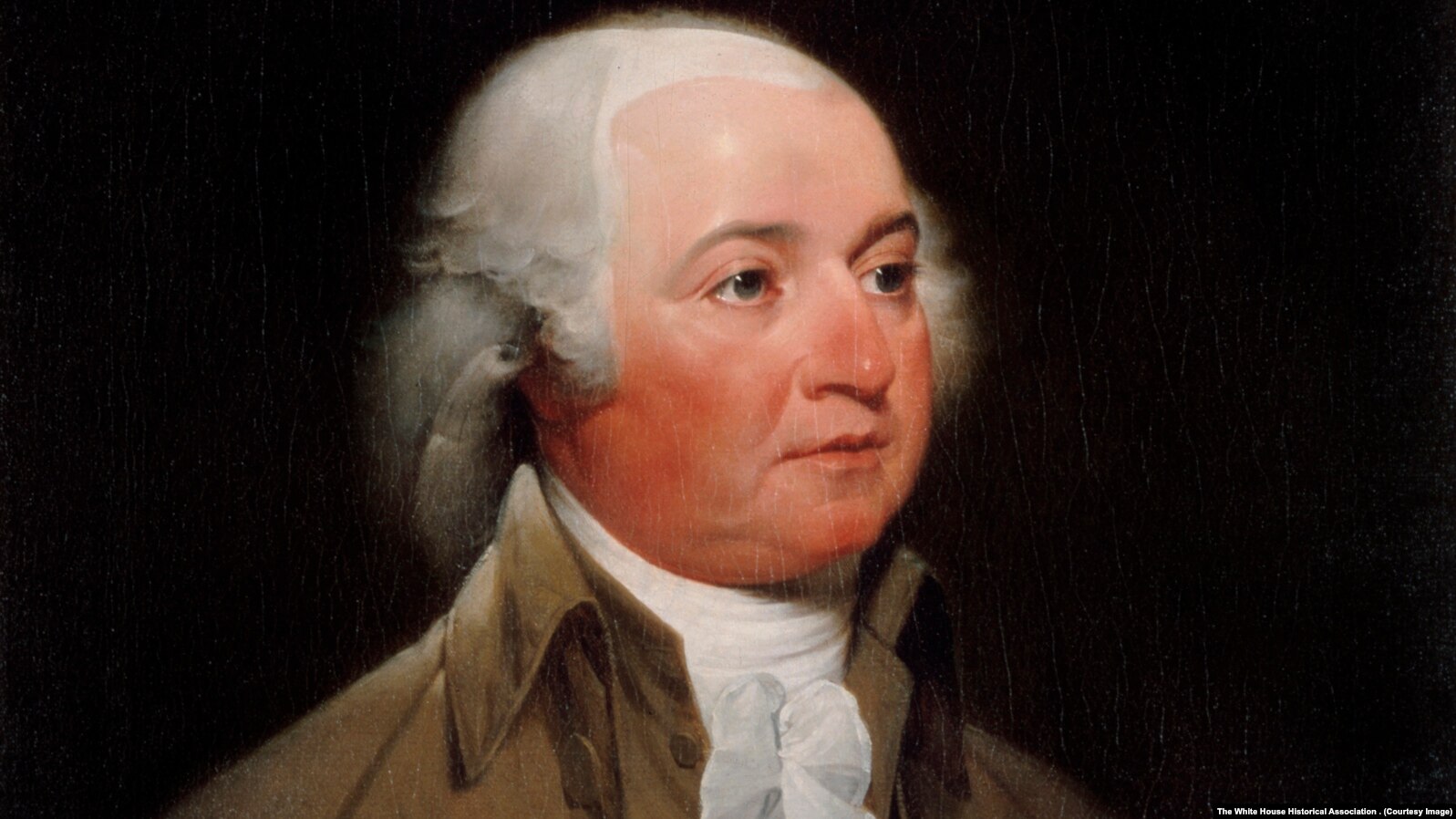
Being second is not always easy. When you are the second president of a new country, following a popular first president such as George Washington, it is even harder.
John Adams, patriot lawyer from Boston, Massachusetts, found himself in that difficult position. In 1796, he was elected the second president of the United States of America.
John Ferling is an historian who has written about the colonial times. In 2015, he published a book called “Whirlwind: The American Revolution and the War That Won It.”
Ferling says a big problem for John Adams is that, unlike George Washington, he really had no experience as an executive before becoming president. Adams had a different background: he served two terms as vice president under Washington, and he served in the Congress and as a diplomat abroad.
But he had never managed an army, a business or a country.
“And the result was Adams made a key blunder at the very outset of his presidency, and the blunder he made was the he retained Washington’s cabinet.”
Adams kept Washington’s official advisers – his cabinet – mostly to satisfy some of his political opponents. These opponents were members of Adams’ own party, but they did not support Adams.
Later, Adams learned that some of his advisers did not support him either. They were more loyal to the former secretary of the treasury, Alexander Hamilton. Hamilton did not hold elected office at the time, but he continued to influence the nation’s affairs.
Historian John Ferling says Adams was “in kind of over his head, and started swimming upstream” almost from the start of his presidency.
“He didn’t know what he was getting into. I don’t think he really understood their loyalty to Hamilton. Maybe he was just incredibly naive.”
Adams also was known for getting angry easily and often acting depressed. Ferling says the second president may have suffered from an immune disorder called Graves’ disease, which could have caused his dramatic changes in emotion.
The busiest lawyer in Boston
Even though Adams struggled as president, he was successful in other parts of his life.
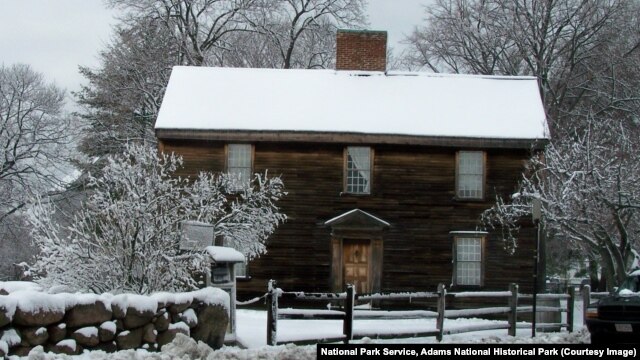
He grew up outside the city of Boston, Massachusetts. His father was a farmer, as well as a church official and town leader. He hoped his son would be a minister; however, John Adams chose to attend Harvard University and become a lawyer.
Adams was a very good lawyer. In fact, he was one of the busiest lawyers in Boston. His success enabled him to buy a big, two-story house that still stands in Quincy, Massachusetts. At that time, the average farmer lived in a home the size of today’s two-car garage.
The Adams family
He also had a happy marriage.
John Adams married Abigail Smith in 1764. They had six children together.
John and Abigail’s relationship is one of the most well-known of that time because they wrote many letters to each other over the years they were apart. More than 1,000 of their letters still survive today.
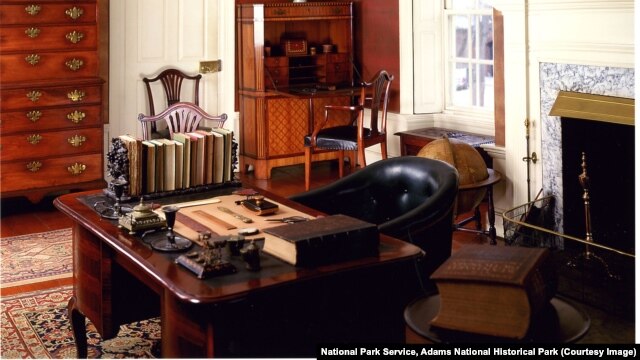
John and Abigail Adams were both passionate patriots who supported the American Revolution.
They also agreed about the issue of slavery. John and Abigail believed it was a “revolting institution,” according to historian John Ferling. Unlike many founding families of the U.S., the couple did not own slaves and spoke out against the practice of people owning other people.
A troubled presidency
Adams was elected president at a fragile time for the United States. People did not know if the country would hold together in the transition from one president to the next.
The election of 1796 followed the original rule in the U.S. Constitution. At that time, the Constitution said the person who received the majority of votes became president. The person with the second largest number of votes became vice president. In 1796, that rule meant that Adams became the nation’s second president, and his political opponent, Thomas Jefferson, became the vice president. Even though the two leaders were personal friends, they often struggled over competing ideas about the role of the federal government.
In addition to the challenges of leading a divided administration, Adams struggled to deal with a foreign policy crisis. The Revolution in France threatened to spread to other European countries. Many countries, including Great Britain, answered the threat by allying against France. Historian John Ferling says that the crisis in Europe shaped Adams’ presidency and “caused him endless troubles.”
Adams worked hard to make sure the United States did not get pulled into a war between France and Great Britain. But France did not trust the U.S.; it tried to interrupt trade between the U.S. and Great Britain by seizing U.S. ships.
John Adams wanted to resolve the problem peacefully. He threatened military action, but he also sent diplomats to talk with French officials. Adams aimed for “an honorable peace” with France. Eventually, he got it.
“My sense of Adams’ presidency, is while there were a great many failures in Adams’ presidency, ultimately he succeeded. He succeeded in avoiding war.”
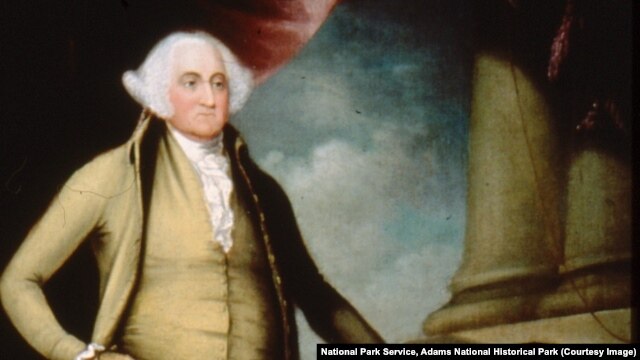
In fact, many years later, Adams wrote that “the greatest jewel in his crown” was achieving peace with France.
No friend of immigrants
Something that Adams was not favorably remembered for is signing the Alien and Sedition Act in 1798. The four Acts extended the time from five to 14 years that immigrants had to wait before becoming U.S. citizens. They permitted the government to detain citizens from enemy nations without a reason during wartime. They allowed the president to deport foreign citizens he believed were dangerous. And they made it a crime to criticize the president or Congress.
Adams said the laws aimed to control people in the U.S. who supported France. But many politicians at the time—as well as historian John Ferling—pointed out that the laws mostly affected people who supported the opposing political party, the Republicans.
“I think it’s purely partisan and what they were trying to do, on the one hand, was silence the Republican press, and second they were trying to reduce the number of voters who would be voting for the Republican Party.”
Ferling says Adams may have been using the Alien and Sedition acts to protect his political career. But in fact, they damaged the president’s reputation. They made many immigrants flee the country, and raised the question for the first time of whether states had the right to ignore a federal law if they disagreed with it.
Adams and Jefferson
Adams faced a difficult re-election in 1800. His old friend Thomas Jefferson opposed him. Both parties carried out ugly personal attacks.
When Jefferson won, Adams retired to his farm in Massachusetts. His loss, however, was not the end of a John Adams in the presidential mansion. One of his six children, John Quincy Adams, served as the sixth president of the United States from 1825-1829.

In his later years, Adams wrote an autobiography and many letters. They eventually included long letters to Thomas Jefferson. The two men often corresponded in the last years of their lives. They discussed their families, their thoughts on politics and religion, and their nation’s history. Adams and Jefferson were the last living members of the original Americans who started a new county.
Then, on July 4, 1826 – the nation’s 50th birthday – these friends, patriots and former U.S. presidents both passed away. On the same day.
The last words John Adams ever spoke were: “Jefferson lives.”
In fact, Jefferson had died five hours earlier. But, in the days before telephones or Internet, Adams had no way of knowing his friend had gone before him.
I’m Anne Ball.
Anne Ball wrote this story. Kelly J. Kelly was the editor.
Words in This Story
patriot – n. person who supported the revolutionary war for freedom from Britain
executive – n. a person in charge of a business as a manager
blunder – n. a stupid, careless, mistake
naïve – adj. do not understand what is going on, lack of knowledge or judgment
revolting – adj. extremely unpleasent
fragile – adj. something that can break easily
challenge – n. to test the ability, skill, or strength of something
correspond – v. to write someone
